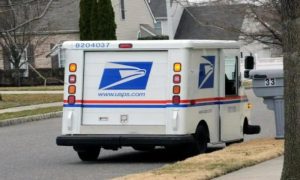- An influential FDA panel has approved booster shots of both Moderna’s and Johnson & Johnson’s COVID-19 vaccines for millions of Americans; they are likely to receive official FDA and CDC approval within days.
- The same panel paved the way for Pfizer’s booster shot approval, which the CDC currently recommends for groups like those 65 and older, those with underlying conditions, and essential workers.
- The FDA panel will soon make a call on “mix-and-match” boosters, too.
- An influential U.S. Food and Drug Administration (FDA) panel has endorsed booster shots of Moderna’s original two-dose COVID-19 mRNA vaccine and Johnson & Johnson’s single-dose COVID-19 vaccine for millions of vulnerable Americans, just weeks after doing the same for Pfizer-BioNTech’s vaccine
Although this recommendation is not a final ruling, the FDA and the Centers for Disease Control and Prevention (CDC) are likely to approve Moderna booster doses based on the panel’s findings within days, with Johnson & Johnson’s to follow.
The FDA panel, called the Vaccine and Related Biological Products Advisory Committee (VRBPAC), voted unanimously on Thursday to approve a half-dose of Moderna’s mRNA option for adults 65 and up, people in long-care facilities, those with underlying medical conditions, and essential workers at a higher risk of contracting COVID-19 at their jobs. The same applies to Johnson & Johnson’s adenovectored option, which was unanimously approved by the panel on Friday. The FDA is expected to make a final decision on Moderna and Johnson & Johnson booster doses in the coming days, and the VRBPAC is currently evaluating “mix-and-match” boosters.
The recent recommendations from the CDC pertain only to the Pfizer-BioNTech vaccine, and apply to people 65 and older, residents of long-term care facilities, people with underlying health conditions, and people who work in certain settings—but the details are not without controversy.
Here’s what has transpired: On August 18, the CDC and the FDA announced that all Americans who received the two-dose mRNA COVID-19 vaccines should get booster shots eight months after receiving their second dose. That included those who received either the Pfizer-BioNTech or Moderna vaccines, and they were told boosters would be available in September.
But at the time, neither the CDC’s Advisory Committee on Immunization Practices (ACIP) nor the FDA officially authorized booster shots for Americans aged 12 and up. After a recent meeting, the VRBPAC voted that only Americans who are 65 and up, or who have certain underlying health conditions, should get booster shots at this time. The reason, the panel members said, is that there is not yet enough evidence to recommend boosters for younger, healthier people.
Then, the ACIP met on the topic on September 22 and 23, and voted to recommend booster shots of the Pfizer-BioNTech vaccine for people aged 65 and up, along with residents of long-term care settings. Those booster shots should be given at least six months after patients completed their initial two doses of the vaccine, the ACIP said.
This is where things get a little more confusing. Rochelle Walensky, M.D., director of the CDC, overrode the ACIP’s decision and included health care workers, teachers, and others workers in jobs that put them at high risk for COVID-19. Now, the CDC’s recommendation on booster shots lists the following groups:
- people 65 years and older and residents in long-term care settings should receive a booster shot of Pfizer-BioNTech’s COVID-19 vaccine at least 6 months after their Pfizer-BioNTech primary series,
- people aged 50–64 years with underlying medical conditions should receive a booster shot of Pfizer-BioNTech’s COVID-19 vaccine at least 6 months after their Pfizer-BioNTech primary series,
- people aged 18–49 years with underlying medical conditions may receive a booster shot of Pfizer-BioNTech’s COVID-19 vaccine at least 6 months after their Pfizer-BioNTech primary series, based on their individual benefits and risks, and
- people aged 18-64 years who are at increased risk for COVID-19 exposure and transmission because of occupational or institutional setting may receive a booster shot of Pfizer-BioNTech’s COVID-19 vaccine at least 6 months after their Pfizer-BioNTech primary series, based on their individual benefits and risks.
The final recommendations are “confusing” for people, says William Schaffner, M.D., an infectious disease specialist and professor at the Vanderbilt University School of Medicine
For those who are above the age of 65 and those with high risk conditions, there is clear data that a third dose of the Pfizer vaccination at six months will prevent them from getting serious illness and needing hospitalization from COVID, to a higher degree,” infectious disease expert Amesh A. Adalja, M.D., senior scholar at the Johns Hopkins Center for Health Security. But he’s not convinced of the decision to expand boosters to other groups. “I do not think that healthy individuals between the ages of 18 and 64 will benefit very much from a booster vaccination,” Dr. Adalja says. “These individuals are very, very low risk for serious disease and it’s unclear how well a third dose will protect against a mild breakthrough infection and how transient that response may be. There really was no data presented on this aspect of booster vaccinations.”

Dr. Adalja points out that it’s “extremely rare” for a CDC director to reject an ACIP committee decision. “Healthcare workers are one thing, but this occupational exposure is extremely broad,” Dr. Adalja says. “I am concerned about the method used for the 4th recommendation to come to fruition. Why did the CDC director come to a different conclusion than the individuals on the ACIP committee?”
Anthony Fauci, M.D., director of the National Institute of Allergy and Infectious Diseases, recently urged people not to get booster shots of the COVID-19 vaccine before they’re eligible despite the original message to get a booster shot eight months after receiving a second dose of an mRNA vaccine. “I think people are not understanding the difference of planning for something and actually what element of that, what proportion of it, you’re actually going to roll out,” he said on NBC’s Meet the Press. “And that’s exactly what happened.”
Much of the attention has been on booster shots for the mRNA vaccines—Pfizer’s and Moderna’s—but the joint statement previously issued by the CDC and FDA also said that people who received the single-dose Johnson & Johnson vaccine will likely also need an additional shot, pending the results of the company’s two-dose clinical trial. Now, that data has been released.
Johnson & Johnson previously announced that a phase 3 clinical trial found that two doses of its vaccine gave patients 94% efficacy against mild to severe forms of COVID-19, and 100% efficacy against severe forms of the virus. This doesn’t mean that you should seek out a booster dose of the Johnson & Johnson vaccine yet—government agencies haven’t officially authorized those boosters. The same goes for Moderna, which, despite showing “robust antibody responses against the Delta variant,” per a press release, has not yet been officially approved by the FDA or CDC beyond its emergency use authorization.
Johnson & Johnson shared on October 5 that the company has submitted data to the FDA for an emergency use authorization (EUA) for a COVID-19 booster shot for people aged 18 and up. The company pointed out that, based on its clinical trial data, people who are given a Johnson & Johnson booster six months after their initial shot had a nine-fold increase in antibody levels after one week, and a 12-fold increase four weeks after the booster shot. The booster was also “generally well-tolerated,” Johnson & Johnson said in a press release.
Worth noting: The effectiveness of the Johnson & Johnson vaccine has continued without a booster, according to the company. Its clinical trial research found that the vaccine was 79% effective at preventing COVID-19 infections and 81% effective at COVID-related hospitalizations. “There was no evidence of reduced effectiveness over the study duration conducted from March to July 31, 2021,” the company noted.
Mathai Mammen, M.D., head of global research and development for Johnson & Johnson’s vaccine arm, Janssen, told CNN that the company plans to leave it up to the FDA and CDC to decide who should get its booster doses and when. “The process is not that we asked for a very specific interval—we’re providing them data and we’re going to be presenting to the committee,” Dr. Mammen said. “They’ll take all that into consideration when they ultimately decide on an appropriate interval.”
So, are you eligible for a booster shot? And how do they work? We asked doctors to explain why booster doses may be necessary for the future—plus why you should get your first dose of the vaccine as soon as possible if you aren’t yet vaccinated.
Back up: How do booster shots for vaccines work?
“For some vaccines, after a while, immunity begins to wear off,” the CDC explains. “At that point, a ‘booster’ dose is needed to bring immunity levels back up.” Booster shots are extra doses of a vaccine administered sometime after an initial dosage has been received, re-upping your body’s immune response.
Some boosters are recommended very infrequently, like one for tetanus, which should be received every decade. Others, like the annual flu vaccine, are more frequent, due to factors like changing pathogens and waning immunity. Different types of flu virus circulate each year, making an annual shot necessary to protect against the most dominant strains each flu season
SARS-CoV-2, the virus that causes COVID-19, is also mutating, and the variant of most concern is currently Delta, which was first detected in India last December. So far, all of the available COVID-19 vaccines, especially the mRNA ones, appear to offer adequate protection from the Delta variant.
Will you need a COVID-19 vaccine booster shot for full protection?
“At some point, most of us will need a booster,” says Dr. Schaffner. “That happens with a lot of adult immunizations, including the flu vaccine.”
However, COVID-19 vaccines have only been widely available since December 2020 at the earliest, and data is still being collected on how long protection from the vaccines will last.
“There has been a sense that the administration has been very impressed with the data from Israel, which would indicate that immunity is waning,” Dr. Schaffner says. The country has seen preliminary success in giving some of its residents a third dose, which may have provided inspiration for the booster approval by the CDC and the FDA.
There are different strategies to deal with variants, which are now driving the country’s surge in cases, explains infectious disease expert Amesh A. Adalja, M.D., senior scholar at the Johns Hopkins Center for Health Security. “One is to reformulate the vaccine, and the other is to add another booster with the same formulation,” he explains. Creating a booster could increase antibodies and T cells (a type of white blood cell that’s an essential part of your immune system) enough to help tackle variants of the original, dominant SARS-CoV-2 strain. “The COVID-19 vaccine may eventually become like the annual flu vaccine,” he says.
Why might boosters be necessary after six months?
“The available data make very clear that protection against SARS-CoV-2 infection begins to decrease over time following the initial doses of vaccination, and in association with the dominance of the Delta variant, we are starting to see evidence of reduced protection against mild and moderate disease,” the CDC and FDA said in a joint statement.
Based on our latest assessment, the current protection against severe disease, hospitalization, and death could diminish in the months ahead, especially among those who are at higher risk or were vaccinated during the earlier phases of the vaccination rollout,” the announcement continues. “For that reason, we conclude that a booster shot will be needed to maximize vaccine-induced protection and prolong its durability.”
For example, a small study of public health data from Israel released in late July estimated that the Pfizer-BioNTech shot was 39% effective at preventing people from COVID-19 infection in June and early July, compared with 95% from January to early April. That said, the vaccine was still more than 90% effective in preventing severe disease in people in June and July.
It is true that if you look at antibody levels produced by the vaccine, by eight months, they’re starting to wane,” Dr. Schaffner says. “But antibody levels are an imprecise indicator of protection, and other aspects of protection continue to go on.” (This includes those aforementioned T cells.)
There have also been signs that the protection is still better than expected. In a June 2021 study published in the journal Nature, researchers found that the mRNA vaccines trigger an immune response that may offer years-long protection against SARS-CoV-2
Bottom line: Booster doses are now a reality for millions of Americans.
There are still many people in the U.S. who need to get even their first dose of the COVID-19 vaccine, although there is plenty of supply available. “The priority still should be getting people vaccinated with the original vaccine, which does have an impact on all of the variants when it comes to what matters—serious illness, hospitalization, and death,” Dr. Adalja says.
As for booster shots right now, Dr. Schaffner recommends sitting tight, especially if you’re waiting for EUAs for booster shots for the Moderna and Johnson & Johnson vaccines, which are likely to come in a matter of days—plus guidance on receiving a different vaccine as a booster dose.
As for when you’ll actually need a booster shot if you don’t meet the current qualifications? We can’t say yet. “It’s unclear that everyone will need boosters but it is a possibility in the future—it would be something based on erosion of protection against severe disease, which isn’t something happening in the general population yet,” Dr. Adalja says.
“The vaccines are so important,” says Abhijit Duggal, M.D., a critical care specialist at Cleveland Clinic. “We need to reach a point of as many people being vaccinated as possible, as quickly as possible. That’s the biggest thing we can do to get back to some degree of normalcy.”
This article is accurate as of press time. However, as the COVID-19 pandemic rapidly evolves and the scientific community’s understanding of the novel coronavirus develops, some of the information may have changed since it was last updated. While we aim to keep all of our stories up to date, please visit online resources provided by the CDC, WHO, and your local public health department to stay informed on the latest news. Always talk to your doctor for professional medical advice.







































